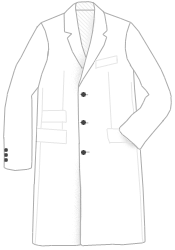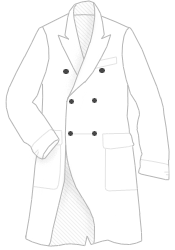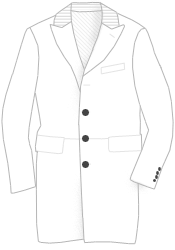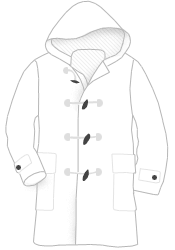All the tips and tricks needed to shape up for 2011. Each day brings new, expert advice on how to look your best and live life to the fullest, while having a little fun doing it.
Buy a Classic Coat
By now, you've likely got your parka and pea coat but if you don't have an old school overcoat, it's the time to think about getting one. A classic coat will be as stylish today as it will be in a decade. But here's the real reason: they'll be going on sale later this month at most major department stores to make room for new spring merchandise. Here's a guide to four stand-up styles. Whether you opt for wool, tweed or camel is a matter of personal taste.

The Car Coat
When the automobile became predominant in the 1950s, drivers needed a top coat that hit above the knee. This single breasted style is the most versatile of the four.

The Polo Coat
This refined, double breasted style is based on the coats once worn by British polo players warming the bench. Brooks Brothers introduced the style to America in 1910.
Biased Advice
A black coat can sometimes feel a bit formal, so we suggest trying navy, gray or even olive green for more versatility.

The Chesterfield
Named after the sixth Earl of Chesterfield in 1830 and popularized by the 1960s mod movement, the tailored coat is still cut from tweeds, charcoals and camels but nowadays, the velvet collar is often removable.
FYI
Coats are cut to accommodate a suit jacket. So if you're a size 40 suit, try on a size 40 topcoat.


